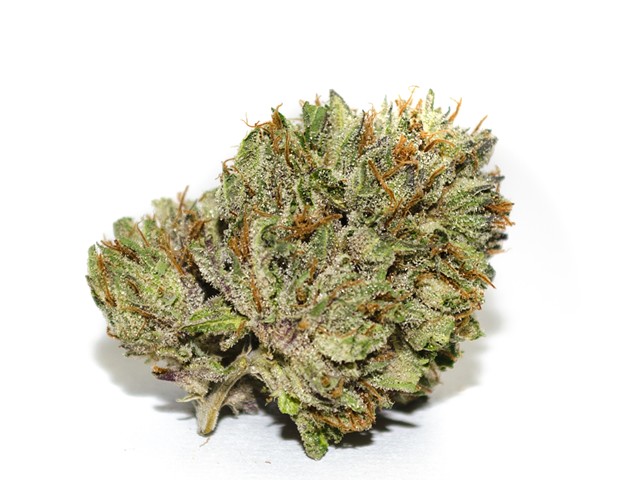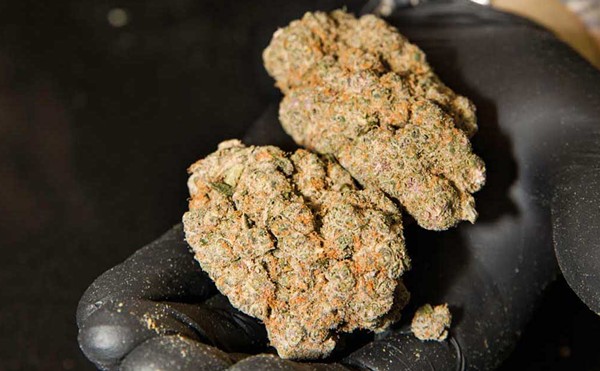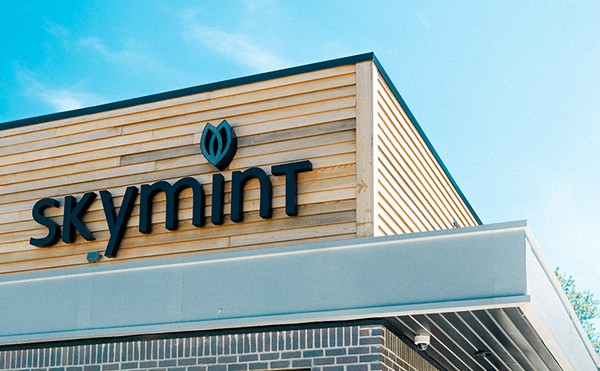One of the reasons the state legislature changed the rules to help keep the question of legalizing marijuana in Michigan off the ballot was because legislators believed voters would approve it. Results of a new EPIC-MRA statewide survey pretty much double down on that sentiment. The poll found that support for legalization leads with 57 percent of voters. The naysayers were at 40 percent.
Those numbers are up 4 percent from last year, and last year's numbers were up 3 percent from the year before. That pretty much shows the trend. That's why MI Legalize, which ran the petition drive the state rejected last year, hasn't given up. Most of the members of the group are longtime activists and remember a day when no one outside of their circle would even talk to them about marijuana. Now there is majority public opinion and a real chance at success. There are actually several lobbyists for different interests in Lansing working with legislators on the issue.
What a difference a couple of decades make — that is, if you haven't had your life run over by the prohibition bulldozer in the in the meantime. People are still getting killed, having their property confiscated, getting their families torn apart, and enriching foreign drug lords — all at the cost of trillions of tax dollars for a failed policy.
So MI Legalize is still at it. The group is pursuing a challenge to the state's rejection of its petition in federal court. But first and foremost, it's working with a coalition to bring a new ballot proposal to voters for 2018.
That was the target year, based on public opinion, that many experienced activists were aiming for in the first place. So did most national marijuana organizations. The effort for the 2016 ballot came about in part because a couple of groups backed by investors were exploring initiatives. MI Legalize people felt the need to jump in now or get beat to the punch. It was a good effort, and it probably set things up for an even better one to come.
"There are people from a lot of groups working together to work out language that is acceptable to the greater community," says attorney Matt Abel, executive director of Michigan NORML, the local chapter of the national marijuana rights organization. "This will become public and there will be a draft available for people to comment on. We want this legislation to be done right, proper, and not susceptible to challenge."
The Marijuana Policy Project (MPP), which backed campaigns in California and elsewhere last time around, was not behind the MI Legalize effort other than giving it a late-in-the-game vocal endorsement. That's changed. The MPP now has a staff member living in Michigan who is meeting with people around the state trying to help figure it all out. That should be a sign that the time is now to change state laws. The MPP is pretty stringent about where it will get fully behind an effort with people and fundraising. One of the things the organization's staff looks for is a strong and dedicated contingent on the ground in a state. It doesn't like major infighting between groups — there has to be unity.
The MPP has been here before. It was a major player in helping the Michigan Medical Marihuana Act get passed in 2008. I'm hoping the return visit will be just as fruitful.
The language in the EPIC-MRA poll was pretty specific to voters about what they were asking: "The proposal would make the possession and cultivation of limited amounts marijuana legal in the state of Michigan for adults age 21 or older. Also, it would allow the sale of marijuana to adults age 21 or older only by stores that would be licensed by the state, and finally, it would tax the sale of marijuana by these state-licensed stores. If this proposal were to appear on a future election ballot, if the election were held today, would you vote yes to approve the proposal, or would you vote no to oppose it?"
That's to the point. One of the big things that people who want to roll back the MMMA is that people didn't know what they were voting for when they voted for medical marijuana. Another issue is that the MMMA doesn't specifically say that it can be sold in "stores." This new recreational legalization language doesn't leave that to chance. It may not matter much; if polling trends continue their direction by the time we're voting in 2018, support should be well over 60 percent.
Detroit challenge
While the city of Detroit is methodically denying variances to its caretaker center ordinance and shutting them down, the group that pressured the City Council to do this is casting another net. They've targeted councilmember George Cushingberry in this fall's election. Winfred Blackmon, who dubs himself "the marijuana fighter," is soliciting supporters to fight the District 2 representative "who voted against Ordinance No. 61 to have regulation and to curtail the expansion of the illegal marijuana dispensaries." (The bold emphases are Blackmon's.)
Blackmon writes that several community organizations "are banning (sic) together to support a candidate who has sworn to be a councilmember for the entire district and not just representing the Downtown District, Midtown District, and the Marijuana Industry. That candidate is Roy McCalister Jr."
McCalister, a former police lieutenant, lost bids for at-large council seats in 2013 and 2014, and a state representative try in 2014. It looks like he's back.
So the fight is on for the Detroit election season. And apparently marijuana is going to be one of the issues. That's fine, we need to be talking about it openly. And I understand why the Metropolitan Detroit Community Action Coalition (MCDAC), which Blackmon chairs, is alarmed. For one thing they've been hearing anti-marijuana propaganda their whole lives and blame a lot of social ills on it. Another thing is that the proliferation of dispensaries in Detroit, partly driven by Oakland County's absolute ban on them, is a reminder of a dynamic that has not boded well for the city. As I once heard a judge in a courtroom admonish a defendant that suburbanites come into Detroit to "do your dirt" then head back home. I don't equate buying marijuana to doing dirt, but I can understand that those who fear marijuana don't want Detroit to be sin city. I've seen my share of folks who hit the Eight Mile Road dispensary strip and head back out to the suburbs.
However, the "marijuana fighter" is just a typical marijuana hater. In his group's first couple of meetings it took them a while to accept that medical marijuana is legal and they couldn't just close down all the dispensaries. Then they decided to try to restrict them out of existence, or at least out of sight. Now they're going after politicians who support a non-prohibitionist attitude. Maybe a small, dedicated band can block things for a while, but the numbers are against them in the big picture in the long run. Politicians respond to forces that can get them elected. In 2012 decriminalization passed in Detroit with 65 percent of the vote. Unless public opinion turns around, and polls don't show that, politicians mostly aren't going to have a strong prohibition stance. Particularly when they look at the economic benefits in tax and regulate states.
MCDAC members have problems with medical marijuana. Their heads will really explode when recreational legalization comes and stores sell it to anybody who's old enough to buy.






